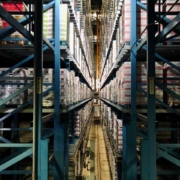G8 countries introduce Open Data Center
In addition to the necessary disagreements and concerns about international politics, there was also positive news to report. The G8 countries have published an Open Data Charter emphasizing the importance of an open science practice.
The G8 countries want scientific, Open Data and Open Data Structures to become the standard. The countries agree that open data sharing leads to considerably more innovation than closed [patent-driven] structures.
Copyright and intellectual property laws can hinder the publication of data such as open data and hinder reuse. In any case, the G8 governments will make their own data available as open data, the charter said. The G8 countries will also strive for “data wisdom” so that citizens and entrepreneurs learn how to use data smartly.
A recent example of the power of open scientific data is the publication of an ebook on edible insects from scientists at Wageningen University and the United Nations Agriculture and Food Organization (FAO). Edible insects: future prospects for food and feed security were downloaded 2.3 million times within a week of publication. The book has now been downloaded more than 10 million times.
This intention could have a major impact on patent law and lead to tackling patent trolling as is currently the case in the pharmaceutical industry [DNA]
Another major change it will bring is the intention to focus exclusively on Open Data Structures. This will give an extra boost to the Open Standard community, which has been advocating this for years in favor of the efforts of companies such as Microsoft that mainly want to keep their own standard.
The 5 principles that form the basis of the charter are:
- Open data as the standard starting point
- Quality and quantity
- Usable and available to everyone
- Release of data for improving governance [Governance]
- Release for innovation
The last 2 principles have been established to strengthen democratic institutions and developments in each of the member countries. Given the fact that Russia is part of the G8, that is startling. While there is still a lot of work to be done and countries still to implement the charter, the intention is a good first step towards greater freedom of information and knowledge that will ultimately benefit countries and their citizens.









